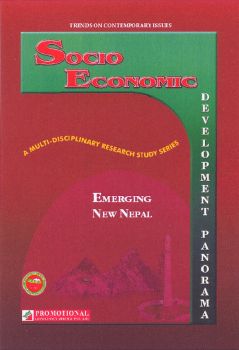Agricultural Development in Nepal: Contribution to Economic Growth, Food Security and Poverty Reduction
Keywords:
Agriculture development, Agriculture growth, Poverty reduction, Food security, Strategic, Information, Negative consequences, Inclusive and sustainableAbstract
Agriculture sector, contributing to more than one third of Gross Domestic Product (GDP) and employing two-thirds of the country's labour force is central to the livelihood of every Nepalese people. The agriculture sector is pivotal to increase income, alleviate poverty and uplift the living standard of the Nepalese people. However, the performance of this sector has been inadequate to meet the increasing food demand and livelihood needs of growing population in the country. In the context of the recent global and national food crisis, recent unprecedented rise of the price of foods, the role of agriculture remains in mitigating food crisis, etc. The aim of agricultural based least developed countries lies in reducing poverty and resolving economic woes.
This paper is the outcome of recent research works conducted in Nepal. It aims to present contribution of the agriculture sector to ensuring food security, enhancing economic growth, and reducing poverty based on the review and analysis of the recent data and information. It provides the current situation of poverty, development gaps, livelihood and food security, food supply and balance, etc. Challenges lied towards integrating trade of agriculture products including providing opportunities for food production and distribution that helps to mitigate food insecurity, reducing poverty, and resolving economic crisis in the country. Finally, the paper suggests measure to take appropriate actions and future strategic directions for improving the performance of the agricultural sector to ensure national food security, spur economic growth, and reduce poverty aimed towards the development and creation of a just, new and a prosperous Nepal.
Keywords: agriculture development, agriculture growth, poverty reduction, food security, strategic, information, negative consequences, inclusive and sustainable
Socio Economic Development Panorama, Vol. 1, No. 3(2008) pp. 49-64

